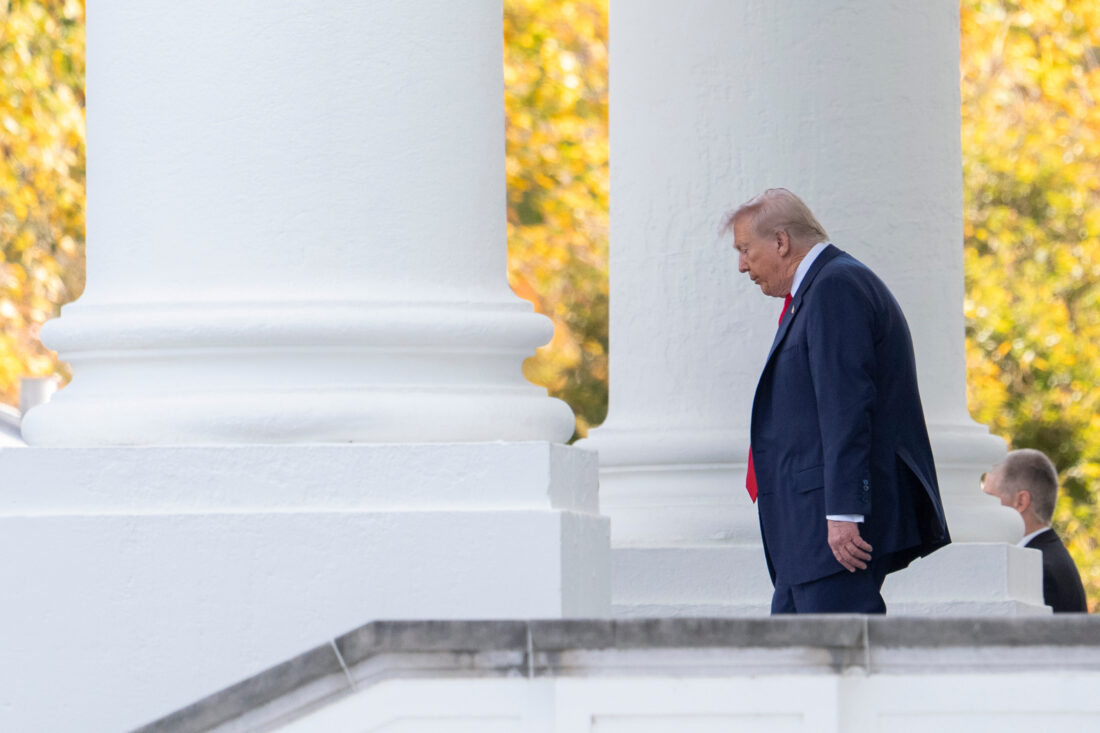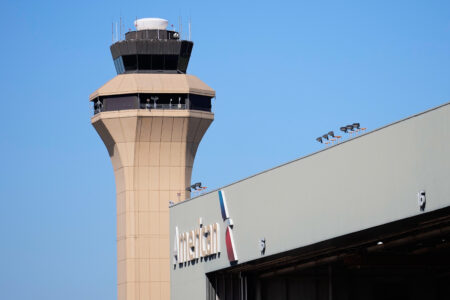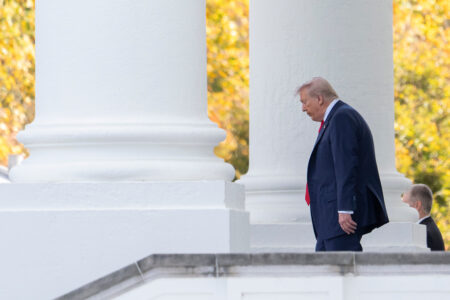Supreme Court to hear arguments on tariffs

President Donald Trump departs from the North Portico of the White House on Friday in Washington. (AP Photo/Alex Brandon)
WASHINGTON (AP) — President Donald Trump sees tariffs — or the threat of them — as a powerful tool to bend nations to his will.
He has used them in an unprecedented way, not only as the underpinning of his economic agenda, but also as the cornerstone of his foreign policy in his second term.
He has wielded the import taxes as a threat to secure ceasefiresfrom countries at war. He has used them to browbeat nations into promising to do more to stop people and drugs from flowing across their borders. He has used them, in Brazil’s case, as political pressure because its judicial system prosecuted a former leader who was a Trump ally, and in a recent blowup with Canada, as punishment for a television ad.
This week, the Supreme Court hears arguments on whether the Republican president has overstepped federal law with many of his tariffs. A ruling against him could limit or even take away that swift and blunt leverage that much of his foreign policy has relied on.
Trump increasingly has expressed agitation and anxiety about the looming decision in a case he says is one of the most important in U.S. history.
He has said it would be a “disaster” for the United States if the justices fail to overturn lower court rulings that found he went too far in using an emergency powers law to put his tariffs in place.
Trump had said he wanted to take the highly unusual step of attending the arguments in person, but on Sunday said he had ruled it out, saying he didn’t want to be a distraction. “I wanted to go so badly — I just don’t want to do anything to deflect the importance of that decision,” he told reporters on Air Force One.
The Justice Department, in its defense of the tariffs, has highlighted the expansive way Trump has used them, arguing that the trade penalties are part of his power over foreign affairs, an area where the courts should not second-guess the president.
Earlier this year, two lower courts and most judges on the U.S. Court of Appeals for the Federal Circuit found that Trump did not have power under the International Emergency Economic Powers Act, or IEEPA, to set tariffs — a power the Constitution grants to Congress. Some dissenting judges on the court, though, said the 1977 law allows the president to regulate imports during emergencies without specific limitations.
The courts left the tariffs in place while the Supreme Court considers the issue. Meanwhile, Trump has continued to wield them as he has tried to pressure or punish other countries on matters related — and unrelated — to trade.
“The fact of the matter is that President Trump has acted lawfully by using the tariff powers granted to him by Congress in IEEPA to deal with national emergencies and to safeguard our national security and economy,” White House spokesman Kush Desai said in a statement. “We look forward to ultimate victory on this matter with the Supreme Court.”
Still, White House press secretary Karoline Leavitt said that the Trump trade team is working on contingency plans should the high court rule against the Republican administration.
“We do have backup plans,” Leavitt said on Fox News’ “Sunday Morning Futures.” “But ultimately…we are hopeful that the Supreme Court will rule on the right side of the law and do what’s right for our country. The importance of this case cannot be overstated. The president must have the emergency authority to utilize tariffs.”
Trump’s tariff strong-arming has rattled relationships with America’s friends and foes. Some have responded by becoming more protectionist or looking to foster relations with China, which has tried to be seen as a promoter of free trade.
There also is the impact on pocketbook. Some businesses have passed on some of the costs to consumers by raising prices, while others have waited to see where tariff rates end up.
Tariffs traditionally have been used just as a tool to address trade practices.
“There’s literally no precedent for the manner that President Trump is using them,” said Emily Kilcrease, who was a deputy assistant U.S. trade representative and earlier worked on trade issues at the National Security Council as a career civil servant during the Obama, Trump and Biden administrations,
“The use of tariffs the way that President Trump is using them is like — just broadscale attack on an economy as a way to incentivize a foreign government to change their posture,” said Kilcrease, now a director at the Center for a New American Security think tank.
But she said the case is not clear-cut. Kilcrease said she thinks there is a “decent chance” the Supreme Court could side with Trump because IEEPA gives the president “broad, flexible emergency powers.”
The case is also coming before a Supreme Court that has thus far been reluctant to check to Trump’s wide-ranging use of executive powers.




